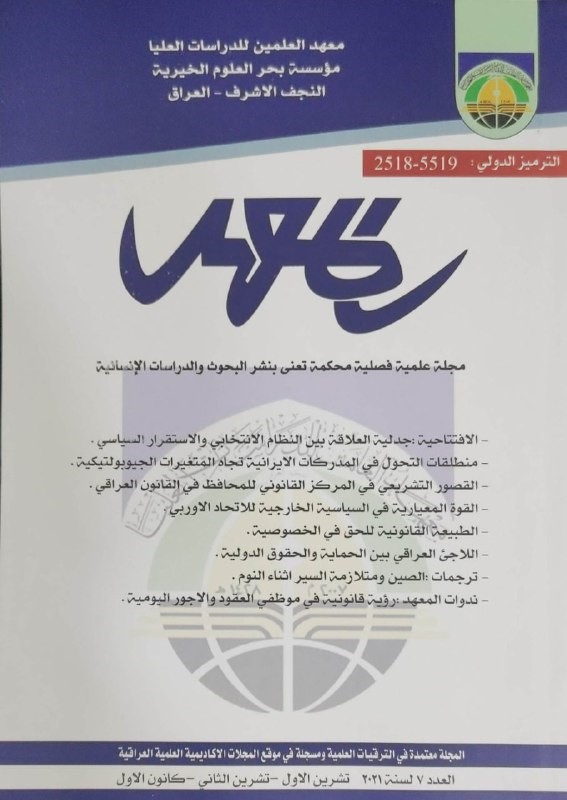القوة المعيارية في السياسة الخارجية للإتحاد الأوروبي
DOI:
https://doi.org/10.61353/ma.0070107Keywords:
الإتحاد الأوروبي, السياسة الخارجية, القوة المعياريةAbstract
Since its establishment in the last century, the European Union has shown great interest in a set of values and principles such as: respecting human rights, supporting democracy, encouraging good governance, focusing on rights and freedoms, establishing peace and resolving conflicts by peaceful means, among others. These values, which greatly contributed to providing common factors for the establishment and expansion of the Union over the past years, have become part of its foreign policy orientation. It seems that these values, which were a unifying factor among its members, have become part of the dilemma of building a military force and agreeing on security and defense policies, because these standards and principles, over many years, helped in the emergence of what has become circulated as (civilian power) for Europe and (normative power). This created an overwhelming feeling among the Europeans that the balance of the world is changed toward the strength of the economy and values and not towards the manifestations of traditional military power, which reinforced the conviction among some that there is no need to focus on building a military arm for the European Union. Although the (normative power) of Europe contributed to building an attractive image of the union and achieved some of its goals, it has - according to some experts - weakened its position in light of the contemporary world's return to power policies and armed competition.
Downloads
Published
Issue
Section
License

This work is licensed under a Creative Commons Attribution-NonCommercial-NoDerivatives 4.0 International License.







